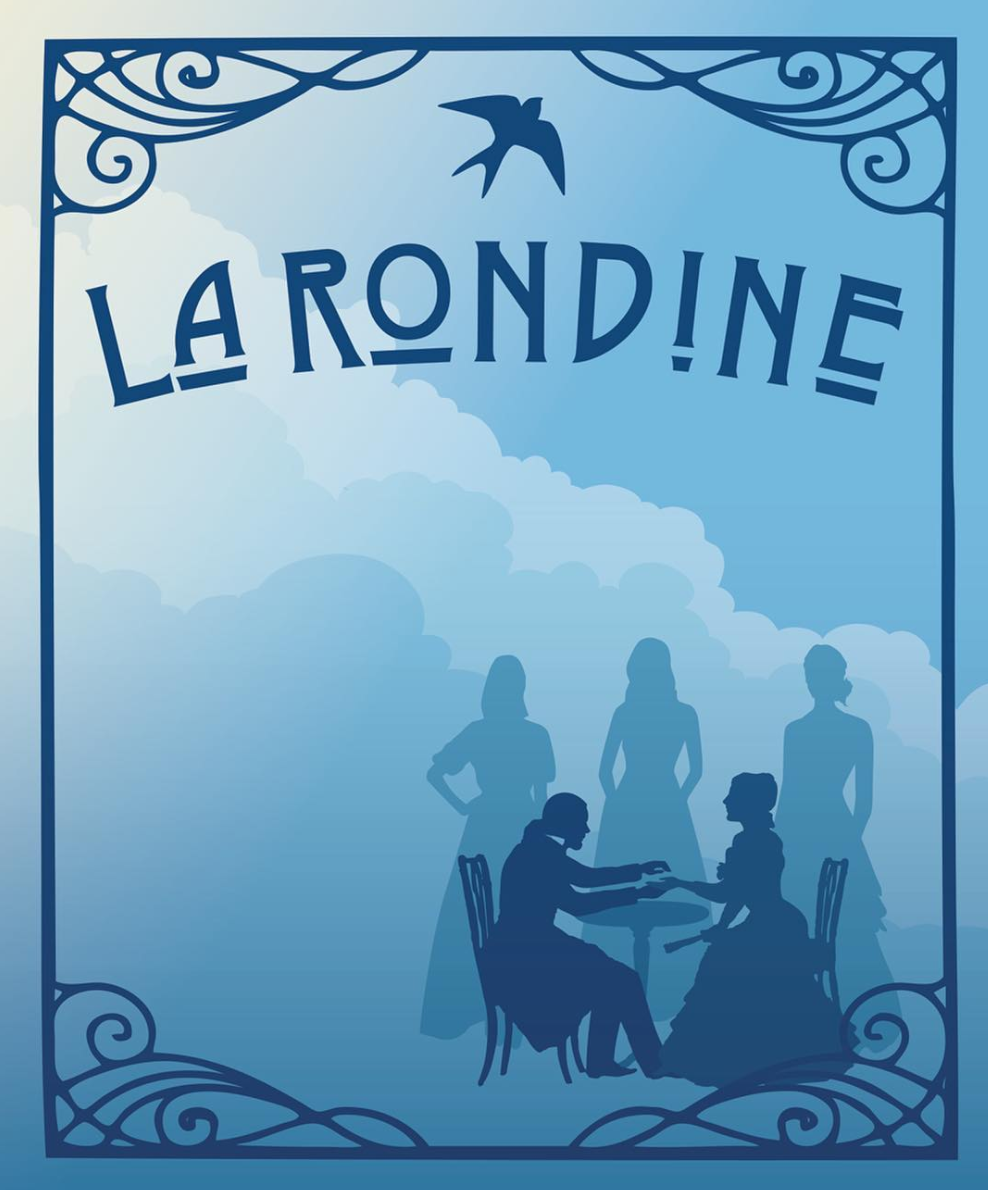Giacomo Puccini is one of opera’s most famous composers. His music permeates the great opera halls of the world and even makes its way in to movies and television advertising advertisements. His opera “La Rondine” has been maligned and un-appreciated for a host of reasons. The music is certainly beautiful: Magda's Aria di Doretta is well-known and beloved, but most people have a hard time humming anything else from this wonderful score.
By guest writer Robert Breault.
As both a singer and a director, I've been involved in five productions of “La Rondine” and I've appreciated the complexity and intricate structure more and more with each visit. As a director, sharing it with audiences in Italy remains one of my most significant professional achievements. For the first time in my 24 years as the U’s Director of Opera, I’ll direct a fantastic student cast as we present “La Rondine” in historic, Kingsbury Hall with the incomparable Utah Philharmonia under Dr. Robert Baldwin. It’s my hope that we’ll change some minds about this under-appreciated gem.

The opera deals primarily with love. The poet Prunier sarcastically exclaims early in Act I: "In elegant Paris people are falling in love...old fashioned, sentimental love is all the rage!" We've been taught that art imitates life and nature. In essence, the concept mimesis holds that the creation of art is relative to, and directly inspired by, the physical world which was held to be a model for truth, beauty, and what was considered "good". Throughout Western history, Nature was the inspiration for writers, painters and musicians. Oscar Wilde, in his 1889 essay "The Decay of Lying", noted that "Life imitates Art far more than Art imitates Life". It is within this context of "life imitating art" that I chose to set and illuminate "La Rondine".
Early in the show we find our heroine Magda decides to visit one of the many famous night clubs, whose façades lit up the sky, and whose dance floors were redolent with the smells and sounds of the all-night waltz, the champagne-induced frivolity, and the endless quest for a good time. She is one of the most famous courtesans in Paris but finds herself trapped in a cage of opulence and duty which she finds tiring. I've set the opera in the lead-up to the outbreak of WWI, a war which saw the end of the era in Paris known as "La Belle Époque". Magda is led to a one of many famous night clubs, whose façades lit up the sky, were redolent with the smells and sounds of the all-night waltz, the champagne-induced frivolity, and the endless quest for a good time. Will the happiness she finds there last? Throughout the story, she is lead into fantasy inspired by art and music. Will she trade the riches and opulence of the demi-monde for true love? The Swallow (La Rondine) flies to the land of love and happiness. Will she remain in her new-found world with Ruggero, the love of her life - is that world reality, or mere fantasy? Puccini, with the pen of a mature and brilliant composer, accompanies Magda on the path to her past, present, and to the tragedy of her future. Come join us for the journey!
LA RONDINE runs 4/21 - 4/22 at Kingsbury Hall.
U of U student tickets are FREE, non- U students with ID are $10, general public tickets are $20
youth 18 and under are $10, U staff/faculty save 10% with ID.
Tickets available at music.utah.edu


